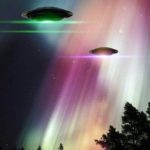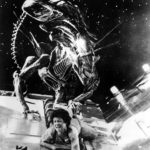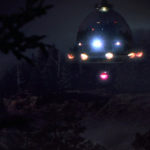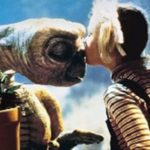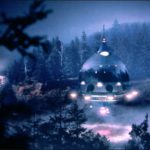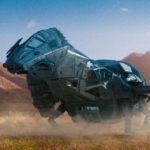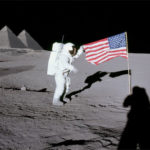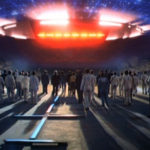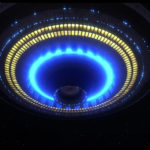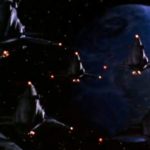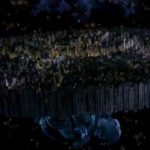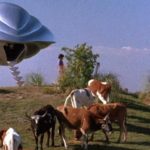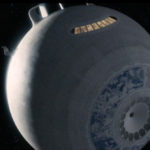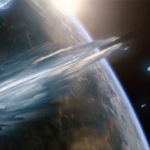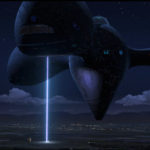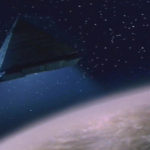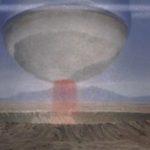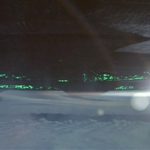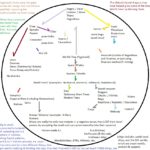It may not even be possible to count all the species in the Universe. Here we try only to list as many sapient ones as we know.
–
Table of Contents:
- Introduction
- Vocabulary
- Humanity’s Policy
- Humanoid Extraterrestrials
- Near-relatives, Ancestors, or Descendants of Humans
- Feline Humanoids
- Canine Humanoids
- Insectoid and Arachnid Aliens
- Centaurs
- Reptilians and Amphibians
- Aquatic Species
- Parasites and Symbiotes
- Robotic and Mechanical Aliens
- Transformers
- Rodents
- Space-living Creatures
- Sentient Plants & Fungi
- Ancient/Primordial Races
- Extremely Exotic Forms
- Shape-shifting Aliens
- Unintelligent Creatures
- Aliens from Other Dimensions
- Galactic Communities
- Non-Human Species List Annex
- Realizations & Findings about how Humans regard the other Species
- Realizations & Findings about the Humanoid Species
- Additional Thoughts
- 1% Difference Theory
- Why Have and Know So Many
–
Introduction:
There are, perhaps, trillions of species spread out across the Universe (not even counting their races/subsets). You may deal with millions just on this world. This page lists many of the ones known to Earth. There are three main categories:
- science-fiction species from books, games, and film
- all mythological, legendary, hybrid, humanoid, and biblical species, including all of the dozens (sometimes hundreds) of types of angels, demons, elves, dwarves, and fairies (sometimes called fay, fairfolk, or gentry, etc.)
- those made by Inisfree
This webpage focuses on the sapient ones.
–
Vocabulary:
Know the difference between sapient and sentient.
-
FORMALwise, or attempting to appear wise.“members of the female quarter were more sapient but no less savage than the others”
-
(chiefly in science fiction) intelligent.“sapient life forms”
-
-
relating to the human species ( Homo sapiens ).“our sapient ancestors of 40,000 years ago”
-
a human of the species Homo sapiens.
–
-
able to perceive or feel things.“she had been instructed from birth in the equality of all sentient life forms”
–
Humanity’s Policy:
For countless generations, the ruling authorities of humanity have proactively endeavored to efface any and all evidence of non-human intelligence. On Earth, religious texts were altered to hide any shred of semblance to contact with extra-terrestrials. Pyramids were demolished and bull-dozed into the sea. Once Space-flight was achieved, faux expeditions were sent to the Moon and Mars to detonate surplus nuclear weapons from the Cold War over sites like Cydonia. Although humanity maintains peaceful relations with many alien civilizations and individuals, these relations are kept classified, and only rumors and ghost stories of abductions flood the public’s media.
–
Humanoid extraterrestrials:
- Acquarans (Farscape)
- Aliens from Independence Day
- Alien from The Greatest American Hero
- Altarian Resistance (Galactic Civilizations)
- Amnioni (Stephen Donaldson’s The Gap Cycle)
- Andorians (Star Trek)
- Aenars – Andorian Subspecies (Star Trek)
- Anterians (The Suite Life on Deck)
- Argolin (Doctor Who)
- Asari (Mass Effect)
- Asgard (Stargate SG-1)
- Atavus (Earth: Final Conflict)
- Atevi (C. J. Cherryh’s Foreigner series)
- Bajorans (Star Trek)
- Bandi (Star Trek)
- Banik (Farscape)
- Betazoid (Star Trek)
- Black Arms (Shadow the Hedgehog)
- Bolians (Star Trek)
- Boolite (Farscape)
- Bothans (Star Wars)
- Breen (Star Trek)
- Brunnen-G (Lexx)
- Cardassian (Star Trek)
- Centauri (Babylon 5)
- Charrids (Farscape)
- Chatilians (Battlelords of the 23rd Century)
- Chigs (Space: Above and Beyond)
- Chiss (Star Wars)
- Chozo (Metroid series)
- Chronian (“Ben 10”)
- Colatas (Farscape)
- Coreeshi (Farscape)
- Cryons (Doctor Who)
- Dakkamites (Marvel Comics)
- The Dance (Marvel Comics)
- Daxamites (DC Comics)
- DearS (DearS)
- Delvians (Farscape)
- Deneans (Farscape)
- Denobulans (Star Trek)
- Drell (Mass Effect 2)
- Deltans (Star Trek)
- Dominators (Doctor Who)
- Drahvins (Doctor Who)
- Druuge (Star Control)
- El-Aurians (Star Trek)
- Eldar/Dark Eldar (Warhammer 40,000)
- Elerians (Master of Orion)
- Elves (descended from High Ones, see below) (Elfquest)
- Emiri Kimidori (Haruhi Suzumiya)
- Eridani (Battlelords of the 23rd Century)
- Evons (Master of Orion)
- Ewoks (Star Wars)
- Ferengi (Star Trek)
- Furons (Destroy All Humans!)
- Galvan (Ben 10)
- Galvanic Mechamorph (“Ben 10”)
- Grans (Star Wars)
- The Graske (Doctor Who)
- Geth (Mass Effect)
- Gelth (Doctor Who)
- Gamilons/Gamilus (Space Battleship Yamato/Star Blazers)
- Gedds (Animorphs)
- Gourmand (“Ben 10”)
- Gretchin/Grotz (small goblin like creatures who work for the Orks) (Warhammer 40,000)
- Grudeks (Farscape)
- Grunds (Marvel Comics)
- Grue (Pitch Black)
- Guardians of the Universe (DC Comics)
- Halosians (Farscape)
- Hangi (Farscape)
- Hanudians (Kin-dza-dza!)
- High Ones (Elfquest)
- Hiigarans (Homeworld)
- Hrossa (The Space Trilogy)
- Hrud (Warhammer 40,000)
- Hur’q (Star Trek)
- Hydrans (Star Trek)
- Hynerians (Farscape)
- Ilanics (Farscape)
- Ildirans (Saga_of_Seven_Suns)
- Interions (Farscape)
- Irkens (Invader Zim)
- Jaridians (Earth: Final Conflict)
- Jocaceans (Farscape)
- Kafers (2300 AD)
- Kaleds/Dalek (Doctor Who)
- Kalish (Farscape)
- Kanamit (The Twilight Zone, episode To Serve Man)
- Karrema (Star Trek)
- Kazon (Star Trek)
- Khunds (DC Comics)
- Khurtarnan (Farscape)
- Kizanti (Battlelords of the 23rd Century)
- Klingons (Star Trek)
- Klowns (“Killer Klowns from Outer Space”)
- Kree (Marvel Comics)
- Kweltikwan (Lilo & Stitch)
- Kryptonians (DC Comics)
- Kuyou Suou (Haruhi Suzumiya).
- Kineceleran (“Ben 10”)
- Kymellians (Marvel Comics)
- Laxidasians (Marvel Comics)
- Leoniders (Noon Universe)
- Loboan (Ben 10)
- Lorwardians (Kim Possible)
- Lunataks (Thundercats)
- Lurmans (Doctor Who)
- Luxans (Farscape)
- Majesdanians
- Martians
- Mangalores (the mercenary race of shapeshifter humanoids from The Fifth Element)
- Manicoid (The Middleman)
- Merseians (Ensign Flandry, by Poul Anderson)
- Minbari (Babylon 5)
- Misha (Battlelords of the 23rd Century)
- Mondoshawan (The Fifth Element)
- Moroks (Doctor Who)
- The Moxx of Balhoon, (Doctor Who)
- Mri (C. J. Cherryh’s Faded Sun trilogy)
- Mutzachans (Battlelords of the 23rd Century)
- Naglon (Doctor Who)
- Narn (Babylon 5)
- Namekian (Dragon Ball)
- Na’vi (James Cameron’s Avatar)
- Navs (Dan Dare)
- Nebari (Farscape)
- Neptunians (Futurama)
- Neutrals (Futurama)
- Nox (Stargate SG-1)
- Oans (DC Comics)
- Oannes (Stargate SG-1)
- Ocampa (Star Trek)
- Oculons (Ascendancy)
- Ogrons (Doctor Who)
- Opticoid (“Ben 10”)
- Orks (descendants of the Krork that grow from fungus) (Warhammer 40,000)
- Ortheans (Mary Gentle’s Golden Witchbreed) androgynous until puberty
- Other Men (Star Maker by Olaf Stapledon)
- Overlords (Childhood’s End by Arthur C. Clarke)
- Phagors (Brian W. Aldiss’s Heliconia series)
- Planet Alpha aliens from Kin-dza-dza!
- Planet Uzm alien from Kin-dza-dza!
- Phrygisians (Metroid Prime 3)
- Petrosapian (“Ben 10”)
- Piscciss Volann (“Ben 10”)
- Pleiadians
- Plukanians (Kin-dza-dza!)
- Porquinhos (Orson Scott Card’s Speaker for the Dead)
- Predators/Yautja (Predator)
- Prot (K-PAX)
- Protoss (StarCraft)
- Psychlos (Battlefield Earth)
- Pyronite (“Ben 10”)
- Quarian (Mass Effect)
- Quadrainian (Extreme Dinosaurs)
- Re’ol (Stargate SG-1)
- Reigners (Hexwood by Diana Wynne Jones)
- Relgarians (Farscape)
- Rigellians (Marvel Comics)
- Rigelians (Bravestarr)
- Romulans (Star Trek)
- Ryoko Asakura (Haruhi Suzumiya)
- Saiyan (Dragon Ball)
- Salarian (Mass Effect)
- Sangheili (Halo series
- Scarrans (Farscape)
- Scorvians (Farscape)
- Séroni (Space Trilogy)
- Shi’ar (Marvel Comics)
- Simians (Thundercats)
- Snotlings (another of the green races collectively known to man as Orks) (Warhammer 40,000)
- Sontarans (Doctor Who)
- Sorn (Out of the Silent Planet)
- Spirits (Stargate SG-1)
- Splixson (“Ben 10”)
- Squigs (as snotlings) (Warhammer 40,000)
- Surrakin (Stargate SG-1)
- Suliban (Star Trek)
- Sykarians (Farscape)
- Sycorax (Doctor Who)
- Syreen (Star Control)
- Taelons (Earth: Final Conflict)
- Taiidan (Homeworld)
- Talaxians (Star Trek)
- Tamaranians (Teen Titans)
- Tarkans (Farscape)
- Tatanga (Super Mario Land)
- Tau (Warhammer 40,000)
- Tavleks (Farscape)
- Tectonese (Alien Nation)
- Tellarites (Star Trek)
- Terrians (Earth 2)
- Tetramand (“Ben 10”)
- Thanagarians
- Thep Khufan (“Ben 10”)
- Therons (Dan Dare)
- Time Lords/Gallifreyans (Doctor Who)
- To’kustar (“Ben 10”)
- Trabe (Star Trek)
- Transylian (“Ben 10”)
- Traskans (Farscape)
- Trills (Star Trek)
- Trolls (Elfquest)
- Turian (Mass Effect)
- Tusken Raiders (Star Wars)
- Twi’leks (Star Wars)
- Utwig (Star Control)
- Vasudans (Descent: FreeSpace – The Great War)
- Venek (Farscape)
- Viltrumites (Invincible)
- Vineans (Yoko Tsuno)
- Vorc (Farscape)
- Vorcarian (Farscape)
- Vorcha (Mass Effect 2)
- Vorta (Star Trek)
- Vortians (Invader Zim)
- Vorticon (Commander Keen)
- Vortigaunt (Half-Life)
- Vulcans (Star Trek)
- Weevils (Torchwood)
- Wraith (Stargate Atlantis)
- Wookiees (Star Wars)
- Xandarians (Marvel Comics)
- Xindi (Star Trek)
- Yuki Nagato (Haruhi Suzumiya)
- Yuuzhan Vong (Star Wars)
- Zabrak (Star Wars)
- Zenetan (Farscape)
- Zen ‘Kethi (Star Trek)
- Zenn-Lavians (Marvel Comics)
- Zentradi (Macross), adapted as the Zentraedi in Robotech
- Zen Rigeln (Battlelords of the 23rd Century)
- Zen-Whoberis (Marvel Comics) – see also Gamora
- Zygons (Doctor Who)
–
Near-relatives, Ancestors, or Descendants of Humans:
- Abh (Crest of the Stars)
- Adeptus Astartes (Space Marines) (Warhammer 40,000)
- Ancients (Stargate SG-1/Stargate Atlantis)
- Ankharans (Crossgen)
- Androsynth, highly intelligent Homo sapiens clones. (Star Control)
- Atlantines (Dan Dare)
- Beastmen (Warhammer 40,000)
- “Colonials” (Battlestar Galactica (2004 TV series))
- Humanoid Cylons (Battlestar Galactica (2004 TV series))
- Darrians (Traveller RPG) known for their small, high-technology polity
- Eloi (The Time Machine)
- Forest Guards (The Fall of the Towers by Samuel R. Delany)
- Futurekind from Doctor Who.
- Gethenians (Ursula Le Guin’s Ekumen stories) and other HILFs.
- Homo Drakensis (The Domination)
- Homo Servus (The Domination)
- Homo Superior in various stories
- Itorloo (Raymond Z. Gallun’s Seeds of the Dusk), remote descendants of mankind
- Haemovores (vampiric creatures descended from humans, mutated by millennia of pollution) (Doctor Who)
- Jaffa (Stargate SG-1)
- Kull Warriors (Stargate SG-1)
- Kromaggs (Sliders) killer apes who survived early evolution in a parallel Earth. Also considered
- Aliens From Another Dimension.
- Ludens (Noon Universe)
- Morlocks (The Time Machine)
- Neanderthals (The Fall of the Towers by Samuel R. Delany)
- Nebish (Half Past Human and The Godwhale by T.J. Bass (The name is not used in the second novel)).
- Neosapiens (Exosquad)
- Nietzscheans (Andromeda)
- Orion Rogues (Battlelords of the 23rd Century)
- Ogryns (Warhammer 40,000)
- Pak (or Protectors) (Larry Niven’s Known Space books) the superintelligent adult form of homo habilis; human Protectors are even more intelligent.
- Primords (humans mutated into ape-like beasts) (Doctor Who)
- Ratlings (Warhammer 40,000)
- Sebaceans (Farscape)
- Second through Last Men (Olaf Stapledon’s Last and First Men)
- Squats (now extinct Warhammer 40,000)
- Spaceballs (race from a movie of the same name)
- Terra Novans (Star Trek)
- Toclafane (Doctor Who)
- Underpeople – animals that have been modified to appear and act human. (Works of Cordwainer Smith)
- Vilani (Traveller RPG) known for their bureaucratic tendencies and empire building
- Zhodani (Traveller RPG) known for their psychic abilities
* In Star Trek: The Next Generation, the episode “The Chase” revealed that all the humanoid races in the galaxy are the result of genetic tinkering by a single humanoid race in the distant past. Similarly, in Marvel Comics’ The Eternals, it was revealed that many species were genetically tampered with by the Celestials.
–
Feline Humanoids:
- Aslan (Traveller RPG)
- Cathar (Star Wars)
- Caitians from Star Trek (Only seen in the animated series and briefly in Star Trek IV: The Voyage Home)
- Captain Amelia’s species, from Treasure Planet
- Cat People from Doctor Who.
- Cat Girl Maids from UFO Ultramaiden Valkyrie
- Centrans (Christopher Anvil’s Pandora’s Planet stories)
- Cheetah People (Doctor Who From the final story of the original series Survival)
- Cizerack (Battlelords of the 23rd Century)
- Ctarl-Ctarl (Outlaw Star)
- Fearcats Power Rangers: Operation Overdrive
- Fefethil (Robert Westall’s Urn Burial)
- Felinetta or Cat-People (Doctor Who Missing Adventures: Invasion of the Cat-People by Gary Russell)
- Fellpool or Hellpool (Star Ocean)
- Futar (Dune)
- Hani (C. J. Cherryh)
- Hrubbans (Anne McCaffrey’s Doona Series)
- Kilrathi (Wing Commander games)
- Klees (Pendragon series)
- Krangs (Bravestarr animated space western TV series)
- Kymnar (FTL:2448 RPG)
- Kzinti (Larry Niven’s Known Space series)
- Lyrans (Star Trek)
- Mephitisoids (Marvel Comics) – see also Hepzibah
- Minggi (Barton Paul Levenson’s Rain and Revenge)
- Mrrshan (Master of Orion)
- Na’vi (Avatar)
- Pantherans (2013)
- Thundereans (Thundercats)
- Tiberians (Buzz Aldrin and John Barnes’ Encounter With Tiber)
- Tiger Men of Mars (Buck Rogers)
- Tran (Alan Dean Foster’s Icerigger)
–
Canine Humanoids:
- Canid (Penny Arcade)
- Chief Anubis “Doggie” Cruger (Power Rangers: SPD)
- Dr. Doppler’s species, from Treasure Planet
- Doog (Star Control)
- Jackalmen (Thundercats)
- Loboan (Ben 10)
- Mawg (Spaceballs)
- Melmacians (ALF)
- Pemalites (Animorphs)
- Shistavanen (Star Wars)
- Vargr (Traveller RPG)
–
Insectoid and Arachnid Aliens:
- Arachnids (Battlelords of the 23rd Century)
- The Arachnid Omnivoracity from Starfire
- Bees (Doctor Who)
- Brood (Marvel Comics)
- Bugs from Klendathu (Starship Troopers)
- Bugs (Men in Black)
- Collectors (Mass Effect 2)
- The Colony (Final Days of the Planet Earth)
- Cinnrusskin of James White’s Sector General series
- Drak (Farscape)
- Driel (Dark Planet)
- Drone (Halo 2)
- Antlion swarm (Half Life 2)
- Empress of the Racnoss from Doctor Who
- Formics (Ender’s Game series by Orson Scott Card)
- Gaim (Babylon 5)
- Grue (Pitch Black)
- The Inibit from Genesis Climber Mospeada (called “Invid” in the Robotech American adaptation)
- Insects (The History of the Galaxy by Andrey Livadny)
- Insects in Steph Swainston’s Castle series
- Ilwrath (Star Control)
- Klackons (Master of Orion)
- Keepers (Mass Effect)
- Klicks (Star*Drive)
- Klikiss (Saga of Seven Suns)
- The Lexx race (Lexx and “Little Lexx” from Lexx)
- Locust (listed under insectoid because of their superorganism-like society, the various Locust types are similar to a variety of creatures such as arachnids, humans, monkeys, bats, Queen type hive insects, jellyfish, and squid) (Gears of War)
- Majat (Alliance-Union universe of C. J. Cherryh)
- Mantis (Conquest: Frontier Wars)
- Marmosians (Ascendancy)
- Martians (Quatermass and the Pit)
- Mind worms (Sid Meier’s Alpha Centauri)
- Menoptra (Doctor Who)
- Mesklinites of Hal Clement’s Mission of Gravity (millipede-like)
- Nagrabs (Dan Dare)
- Optera, (Doctor Who)
- “Prawns” (District 9)
- Rachni (Mass Effect)
- Re’tu (Stargate SG-1)
- Riders, highly aggressive inhabitants of Mother (Remnants)
- Scrin (Command & Conquer 3)
- Shadows (Babylon 5)
- Shivans (Descent: FreeSpace – The Great War)
- space spiders (Lost in Space)
- Spider Aliens (Valiant Comics)
- Lepidopterran (Ben 10)
- Tachidi (Master of Orion)
- Taxxons (from K. A. Applegate’s Animorphs book series) (Centipede/worm-like).
- Tecreaseans (Battlelords of the 23rd Century)
- Than (Andromeda)
- Thargoids from Elite (computer game)
- Thranx of Alan Dean Foster’s Humanx Commonwealth series
- Tyranids from Warhammer 40,000
- Tractators (Doctor Who)
- Team Space Bug of Kaiju Big Battel
- Uchuu Kaijuu (“Space Monsters”) from Gunbuster
- Ur-Quan Kohr-Ah (Star Control)
- Ur-Quan Kzer-Za (Star Control)
- The Vajra from Macross Frontier
- Vore (Doctor Who: The Gallifrey Chronicles by Lance Parkin)
- Wreaves (ConSentiency universe)
- Wirrn (Doctor Who, The Ark in Space)
- Xeno (Alone in the Dark)
- Xenomorph (The Alien series)
- Xindi (Star Trek)
- Zarbi (Doctor Who)
- Zerg (StarCraft)
–
Centaurs:
- Andalites of K. A. Applegate’s Animorphs
- Garatron of K. A. Applegate’s Animorphs
- Ishtarians of Poul Anderson’s Fire Time
- K’kree of Traveller RPG
- Pierson’s Puppeteers of Larry Niven’s Known Space series (sort of).
- Tenebrians of Hal Clement’s Close to Critical
- Titanides of John Varley’s Gaea Trilogy
- Vedrans of Gene Roddenberry’s Andromeda
–
Reptilians and Amphibians:
- Aeodronians (Battlelords of the 23rd Century)
- Badoon (Marvel Comics)
- Bwaps (Traveller RPG) Also known as “Newts”
- Caldarans (Andromeda)
- Cardassians (Star Trek)
- Chamachies (Ascendancy)
- Chelonians (Doctor Who novels)
- Dracs of Barry B. Longyear’s The Enemy Papers stories
- Draconians (Doctor Who)
- Drakh (Babylon 5)
- Dragonets (Anne McCaffrey)
- Dragons (Anne McCaffrey)
- Drell (Mass Effect)
- Droyne (Traveller RPG)
- Foamasi (Doctor Who)
- Gorn (Star Trek)
- Grendarl (Master of Orion)
- the frog-like Gowachin of Frank Herbert’s stories
- Hazudra (Tyrian)
- Hork-Bajir (Animorphs)
- Hutts (Star Wars)
- Hynerians (Farscape)
- Ice Warriors (Doctor Who)
- Jem’Hadar (Star Trek)
- Keronian (KeroroGunso)
- Krogan (Mass Effect)
- Lithians of James Blish’s A Case of Conscience
- Makluans (Marvel Comics) – see also Fin Fang Foom
- Mentors (Doctor Who)
- Monoids (Doctor Who)
- Omicronians / Popplers (Futurama)
- Pfifltriggi (Out of the Silent Planet)
- Python Lizards (Battlelords of the 23rd Century)
- Raas (Master of Orion)
- Ram Pythons (Battlelords of the 23rd Century)
- Reapers (Doctor Who)
- Reptilians (Thundercats)
- Rills (Doctor Who)
- Rodians (Star Wars)
- The Race (Harry Turtledove’s Worldwar)
- Sakkra (Master of Orion)
- Salarians (Mass Effect)
- Sanghelli (Halo)
- Saurians (Crossgen)
- Saurids (Marvel Comics) – see also Ch’od
- Scarrans (Farscape)
- Sea Devils (Doctor Who)
- Seekers/En’kull (Advent Rising)
- Sheyangs (Farscape)
- Silurians (Doctor Who)
- Skaarjs (Unreal)
- Skrulls (Marvel Comics)
- Snake Men (Masters of the Universe)
- Snarks (Marvel Comics)
- Tagorians (Noon Universe)
- Triceratons (Teenage Mutant Ninja Turtles)
- Terileptils (Doctor Who)
- Trandoshans (Star Wars)
- Treens (Dan Dare)
- Unas (Stargate SG-1)
- Vaadwaur (Star Trek)
- Vyrium (Conquest: Vyrium Uprising)
- Vaxasaurian (Ben 10: Alien Force)
- Velantians (Lensman books) notable for their multiplicity of eyes and various appendages
- Vortisaurs (Doctor Who audio dramas)
- Voth (Star Trek) – this species descended from Earth dinosaurs
- Xindi (Star Trek)
- Predator (Predator)
- Yilane of West of Eden series of Harry Harrison
- Zorgons (Zathura)
- (and various variations of dinosaurs)
–
Aquatic Species:
- Aurelians (Advent Rising)
- Babel fish (Douglas Adams)
- Cosmobes (Dan Dare)
- Decapodians (Futurama)
- Delphons (The History of the Galaxy by Andrey Livadny)
- Drell (Mass Effect)
- Fludentri (Ascendancy)
- Leerans (Animorphs)
- Gungans (Star Wars)
- Hanar (‘Mass Effect’)
- Mon Calamari (Star Wars)
- Quarren “Squid Heads” (Star Wars)
- Nommo (Master of Orion)
- Piscciss Premann (Ben 10)
- Piscciss Volann (Ben 10)
- Selkath (Star Wars)
- Squeem (Xeelee Sequence)
- Trilarians (Master of Orion)
- The Vortex life forms (Ecco the Dolphin; assumed to be aquatic)
- Xindi (Star Trek)
–
Parasites and Symbiotes:
- Andromeni (Battlelords of the 23rd Century)
- the “body snatcher pods” from The Body Snatchers (and its film adaptations)
- Bebi (Dragonball GT)
- Byrum (Mr. Gray) (Dreamcatcher (novel) by Stephen King)
- Energy Rider (Farscape)
- Goa’uld (Stargate SG-1)
- Tok’ra (Stargate SG-1)
- Ing (Dark creatures with the ability to possess living beings, the dead, and the artificially intelligent, who become darklings) (Metroid Prime 2: Echoes)
- the eponymous aliens of The Puppet Masters
- the endosymbionts of Hal Clement’s Needle and Through the Eye of a Needle
- The eponymous Metroids
- The Flood (Halo series)
- Headcrab (Half-Life)
- The Hive (Dark Skies)
- The Invid (Robotech), adapted from the non-parasitic Imbit from Genesis Climber Mospeada
- Iskoort (Animorphs)
- Symbiotes (Venom and Carnage of Marvel Comics)
- Trills (Star Trek)
- The wind (Hooded Swan series)
- the Wirrn, Krynoid, and Fendahl from Doctor Who
- Ungooma (Ascendancy)
- Xenocytes (Ben 10: Alien Force)
- Ship (Ben 10: Alien Force)
- Yeerks (Animorphs)
- X Parasites (Metroid)
- Xenomorph (Alien)
- Black oil of the Colonists (X-Files)
- the wind (Brian Stableford’s Star Pilot Granger series)
–
Robotic and Mechanical Aliens:
- Autons (Doctor Who)
- Asurans (Stargate: Atlantis)
- Berserkers (Fred Saberhagen’s Berserker series)
- Borg (Star Trek)
- Bynars (Star Trek)
- Chee (Animorphs)
- Chmmr (Fusion species between the crystalline Chenjesu and the mechanical Mmrnmhrm.) (Star Control)
- Consensus of Parts, the (Andromeda)
- Outcast Consensus (Andromeda)
- Cybermen (Doctor Who)
- Cylons (Battlestar Galactica)
- Cynoids (Master of Orion)
- Daleks (Doctor Who)
- Elysians (Mechanoids on Elysia built by the Chozo)) (Metroid Prime 3: Corruption)
- The Geth (Mass Effect)
- Gort (The Day the Earth Stood Still)
- Grox (Spore)
- Galvanic Mechomorphs (Ben 10)
- Irkens (Invader Zim)
- Kaalium (Moontrap)
- Max (Flight of the Navigator)
- Meklars (Master of Orion)
- Metarex (Sonic X)
- Minions (Ascendancy)
- Mmrnmhrm (Star Control)
- Mother (a massive ship capable of generating environments for captured races) (Remnants)
- Necrons (Necrontyr given immortality by the C’tan) (Warhammer 40,000)
- Phalanx (Marvel Comics)
- Quintessons (Transformers)
- Quarks (Doctor Who)
- Reapers (Mass Effect)
- Replicators (Stargate SG-1)
- S’pht (Marathon)
- Smash Martians
- Technarchy (Marvel Comics)
- Toclafane (Doctor Who)
–
Transformers:
- Autobots
- Decepticons
- Maximals
- Predacons
- Vehicons
–
Rodents:
- Baliflids (Ascendancy)
- Ranat (Star Wars)
- Argit (Ben 10: Alien Force)
- Pierce (Ben 10: Alien Force)
–
Space-living Creatures:
- Bentusi (Homeworld)
- Budong (Farscape)
- Forerunners (The History of the Galaxy by Andrey Livadny)
- Gomtuu (Star Trek)
- Leviathan (Farscape)
- The Lexx race (Lexx and “Little Lexx” from Lexx)
- Star Whale (Doctor Who)
- Outsiders (Larry Niven’s Known Space series)
- The Acanti race from Marvel Comics.
- Oswafts (vacuum-breathers from Lando Calrissian and the Star Cave of the Thonboka) (Star Wars)
–
Sentient Plants & Fungi:
- The Arbryls (Ascendancy)
- Audrey 2 (Little Shop of Horrors (musical))
- Byrus (Dreamcatcher (novel) by Stephen King)
- The Cotati (Marvel Comics)
- Delvians (Farscape)
- Deathworld Flora (found on planets like Catachan and Caliban (pre climactic explosion)) (Warhammer 40,000)
- The Forest of Cheem (Doctor Who)
- Florauna (Ben 10)
- The Flowers of Lophai (Clark Ashton Smith)
- The Frutmaka (Ascendancy)
- The Krynoids (Doctor Who)
- Lyekka (Lexx)
- The Martians from Raymond Z. Gallun’s Seeds of the Dusk
- Methanosian (Ben 10: Alien Force)
- The trees of Luton (Space 1999)
- Mycon (Star Control)
- Oscar from The Lotus Eaters
- Skroderiders (Vernor Vinge’s A Fire Upon the Deep)
- Supox (Star Control)
- The Thorian (Mass Effect)
- Varga plants (Doctor Who)
- Vervoids (Doctor Who)
- Vulthoom (Clark Ashton Smith)
- Wolfweeds (Doctor Who)
- World 4470 (Hainish Cycle)
And, of course, there are the Ents and World Trees.
–
Ancient/Primordial Races:
- Unnamed and unseen aliens in the Space Odyssey series (In the prologue of 3001: The Final Odyssey they are called the “Firstborn”, but never referred to as such in-story in any
novel in the series.) - Ancients (Descent: FreeSpace – The Great War)
- Ancients (Farscape)
- The Ancients (Alterans and Ori from Stargate)
- Assassins (The Heechee Saga)
- Ancients (Traveller RPG)
- The Arisians and Eddorians of E. E. Smith’s Lensman novels
- Celestials (Marvel Comics)
- Celestialsapien (Ben 10)
- Chozo (Metroid)
- Cocytans from Lucasarts’ The Dig
- H.P. Lovecraft’s Elder Gods
- Faranji from Star Sonata
- The First Ones from Babylon 5
- Forerunner (Halo)
- Furlings (Stargate SG-1)
- The Hanshaks from the Ascendancy Universe are an ancient race of toroidal mind-bodies.
- Heechee (The Heechee Saga)
- Iconians (Star Trek)
- Jjaro (Marathon)
- Kimera from Earth: Final Conflict
- Metron from Star Trek:TOS
- Mzungu from Star Sonata
- The Necrontyr, who later became the Necrons (Warhammer 40,000)
- Nox (Stargate SG-1)
- both of Terry Pratchett’s early science fiction novels, Strata and The Dark Side of the Sun, offer subversions of the paradigm. See also Arthur C. Clarke’s short story “The Star”.
- Oans (DC Comics)
- Nebula, the (Andromeda)
- The races of the Occlith and the Voorqual (Clark Ashton Smith)
- Old Ones (Warhammer 40,000)
- Old Ones/Elder Things (H. P. Lovecraft)
- Organians and Ancient humanoids (Star Trek)
- Overmind, the (Childhood’s End by Arthur C. Clarke
- Paradine, the (Andromeda)
- Psionics (Notrium)
- Precursors (Star Control)
- Precursor (Halo)
- The Progenitors of (Homeworld 2)
- Protheans (Mass Effect)
- Protoculture (Macross)
- Shadows (Babylon 5)
- Shipwrights, the creators of Mother (Remnants)
- Thrint or “Slavers”, ancient rulers of the Galaxy in Larry Niven’s Known Space universe
- T’kon (Star Trek)
- Thran (Magic: The Gathering)
- UrQa from Star Sonata
- Vazaha from Star Sonata
- Vorlons (Babylon 5)
- W’rkncacnter (assuming there is more than one) (Marathon)
- Watchers (Marvel Comics)
- Xel’Naga (StarCraft)
- Xeelee (Xeelee Sequence)
–
Extremely Exotic Forms:
- Aliens from Sector General by James White are among the most diverse. Crystalline methane creatures, continent sized carpets, rolling ring-shaped aliens, chlorine breathers, radiation eating telepaths and creatures assembled from several symbiont species meet in a setting of space hospital.
- Aliens that are product of mechanical evolution in The Invincible by Stanislaw Lem
- The Animus (a telepathic alien intelligence with a corporeal form resembling an octopus) (Doctor Who)
- Ark Megaforms (a non-humanoid race from Noon Universe, no information on appearance available)
- Abyormenites of Hal Clement’s Cycle of Fire (floating ballons – one race, that is)
- Beta Renner cloud (Star Trek)
- Black Cloud of Fred Hoyle (interstellar dust cloud)
- Blue Meanies, armoured creatures that live on Mother, created to care for her (Remnants)
- C’tan (‘Star Vampires’ worshipped and given corporeal form by the Necrontyr, only four still exist, only two of which (the Nightbringer and the Deceiver) are active, Mars (The Void Dragon) is believed to be one that was covered by space dust over trillions of years ago) (Warhammer 40,000)
- The Caleban of Frank Herbert’s Whipping Star (invisible telepathic beings who are actually the minds of stars)
- The Celareon of Conquest: Frontier Wars RTÉ Game, peaceful beings of pure energy. They constructed mechanical bodies with which they interact with his entourage, and they control it by a cell where lie their true “body”.
- Chenjesu (intelligent silicon-based crystals) (Star Control)
- Chronomyst (Ascendancy) sentient jellyfish-like creatures that communicate by refracting light within their bodies.
- The Chtorr (pink wormlike creatures from David Gerrold’s War Against the Chtorr series. According to David, the Chtorr can also refer to the entire alien ecology.)
- Dnyarri (non-humanoid Telepaths) (Star Control)
- The Doublers (two-in-one semi-humanoids of Stanislaw Lem’s Eden)
- Dralasite (an amoeboid race introduced in the Star Frontiers role-playing game)
- Drej (a race responsible for the destruction of Earth; made out of pure energy, Titan A.E.)
- The Dubtaks from the Ascendancy Universe remind of sperm cells.
- Dugs (Star Wars)
- Dyson Aliens (Peter F. Hamilton’s “Pandora’s Star”)
- Ego the Living Planet (Marvel Comics)
- Eldila (barely visible faint, shifting light that are native to interplanetary space) (Space Trilogy)
- The Face of Boe, (a giant head in a jar-like support system) (Doctor Who)
- Father (Animorphs) an intelligent entity formed from a network of algae and alien corpses spread across an ocean planet.
- Meehooks from the comic book series Fusion, “dinosaurs with fur”
- Gadmeer who live in a sulphur environment. (Stargate SG-1)
- Garrotian Snails (Noon Universe)
- The Gelth (intelligent gaseous lifeforms) (Doctor Who)
- Ghatanothoa of H. P. Lovecraft (has Gorgon-like visual properties)
- Ghroth from Ramsey Campbell’s short story “The Tugging” (small, sentient planet with a large red eye)
- Giygas from EarthBound (Mother 2)
- The Gladifers of Dennis Paul Himes
- The Govorom species from the Ascendancy Universe are feminine-like spirits of nature.
- Great Race of Yith of H. P. Lovecraft (Disembodied, time-hopping minds of a long-dead alien race; known bodies used are gigantic molluscs and large beetles)
- Grogs (conical sessile sentient telepaths in Larry Niven’s Known Space universe)
- Harmonia (The Sirens of Titan) a cave-dwelling flatworm-like race living on Mercury
- Headies (a kynoid (dog-like) sentient race from Noon Universe)
- Hivers of Traveller RPG (modified starfish)
- Hooloovoo (non-corporeal beings, when refracted in a prism, appear as a shade of blue) (The Hitchhiker’s Guide to the Galaxy)
- Horta (Star Trek) silicon-based tunneller.
- The Invaders of John Varley’s Eight Worlds novels, higher-dimensional beings originating from a gas giant.
- Kambuchka (Ascendancy).
- Judoon (Humanoid Rhinos) (Doctor Who)
- Kymellians (humanoid horses) (Marvel Comics)
- Lloigor from Colin Wilson’s Return of the Lloigor (Vortices of energy; Solidify as vast, alien reptiles)
- Logrians from Andrey Livadny’s The History of the Galaxy series (two-headed xenomorphs)
- Ly-Cilph (begin their lives as corporeal, but can latter become non-corporeal being) (Night’s Dawn Trilogy)
- The Macra (giant crab-like aliens with telepathic and hypnotic ability) (Doctor Who)
- Mars People of the Metal Slug series (intelligent creatures resembling squids or octopi, sporting a great amount of tendril-like tentacles)
- The Martians from H.G. Wells’s The War of the Worlds
- The Martians from Olaf Stapledon’s Last and First Men, sentient cloudlets composed of countless microscopic particles
- Mebes (Giant single-celled sentient organisms from the Ascendancy Universe)
- Melnorme (Star Control)
- Methorians of Barrington J. Bayley’s Zen Gun (gaseous giant-giant dwellers)
- Medusans (Star Trek) an incorporeal race who cannot be looked at by humanoids.
- Nimbuloids (a species of large sentient gas creatures from the Ascendancy Universe)
- Oankali of Octavia Butler’s Xenogenesis series
- Orfa (Ascendancy)
- Ogri (silicon-based life form resembling standing stones) (Doctor Who)
- Pan Spechi (each individual has five different bodies, occuping each one throughout their life time) (ConSentiency universe)
- Puppeteers of Larry Niven’s Ringworld and Known Space series (three legs, two manipulative heads)
- Pilots (Farscape)
- Phantoms (a ghost-like race from Final Fantasy: The Spirits Within)
- Photino Birds (made up of Dark Matter) (Xeelee Squence)
- Pkunk (appear like Toucans) (Star Control)
- Prophets (Star Trek)
- Qax (Xeelee Squence)
- Rigellians (Lensman books) which are barrel-shaped with four tentacular arms and four stubby legs
- Mr. Saturn (EarthBound)
- The Scrin of Command & Conquer, an intelligent species of unknown form which are apparently symbiotic with the crystal, root and spore, Tiberium.
- Shevar (Ascendancy) an inorganic race from an alternate universe that feeds on life force.
- Shoggoths (H. P. Lovecraft)
- Silicoids (a race of sentient crystals in the Master of Orion universe)
- The Slitheen (or, more accurately, Raxicoricofallopatorians — Slitheen is a family name, not the species), bipedal, vaguely humanoid creatures with sharp claws and baby faces, made of living calcium, (Doctor Who)
- Slylandro (Star Control)
- The Snovemdomas from the Ascendancy Universe are similar to mammoths.
- Solaris by Stanislaw Lem (living ocean)
- Spathi (similar to shellfish) (Star Control)
- Sphere (Sphere (novel) by Michael Crichton)
- Spline (whalelike creatures that rebuilt themselves into living ships) (Xeelee Squence)
- Swaparamans (Ascendancy)
- Tetraps (vaguely humanoid bat-like creatures with four eyes allowing 360 degree vision) (Doctor Who)
- Tholians (Star Trek)
- Thraddash (boar- or rhino-like creatures with whiskers) (Star Control)
- Tralfamadorians of Kurt Vonnegut (The Sirens of Titan, Slaughterhouse 5)
- Treecats – Six-limbed cats (Honor Harrington Series)
- Trillions of Nicholas Fisk (small collective crystals)
- Trisolians (Humanoid creatures made out of liquid) (Futurama)
- Taprisiots (Whipping Star, The Dosadi Experiment)
- Tweel from A Martian Odyssey
- Umgah (large, pink or lilac-colored blobs) (Star Control)
- Utroms (Teenage Mutant Ninja Turtles)
- VUX (green tentacular creatures) (Star Control)
- Wanderers (most mysterious of the Noon Universe races, no information about their appearance is available, but most likely they’re non-humanoid)
- Watchers In The Dark (highly telepathic creatures that inhabit the ruins of Caliban, home of the Dark Angels Space Marine Chapter) (Warhammer 40,000)
- Yag-Kosha (from Robert E. Howard’s The Tower of the Elephant) (humanoid elephant)
- Yehat (pterodactyl-like creatures) (Star Control)
- Yuggs (Maggot-like)
- Zebesian Space Pirates (Metroid series — the species has a wide range of morphological variety)
- Zonama Sekot – a sentient planet with mysterious, powerful abilities. (Star Wars)
- Zoq-Fot-Pik (Star Control)
–
Shape-shifting Aliens:
- Capelons (Ascendancy)
- Aylee – (Sluggy Freelance) – Shapeshifts every stage of the lifecycle
- Clawdite – (Star Wars)
- Chameloids (Star Trek)
- Changelings (Star Trek)
- Changers (Consider Phlebas by Iain M. Banks)
- Darlok (Master of Orion)
- Durlans (the race of Chameleon Boy from the Legion of Super-Heroes) (DC Comics)
- Extraterrestrial Living-metal Shape-shifter (ELS), the race of techno-organic sentient aliens from Mobile Suit Gundam 00 the Movie: Awakening of the Trailblazer
- The Green and White Martians of the DC universe – see also Martian Manhunter
- High Ones (Elfquest)
- Krillitanes (Doctor Who)
- Makluans (Marvel Comics) – see also Fin Fang Foom
- Mangalores (the mercenary race of shapeshifters from The Fifth Element)
- Martians (Invincible)- see Shapesmith
- Mazians (Battlelords of the 23rd Century)
- Plasmavore (Doctor Who)
- Rutans (Doctor Who)
- Silkies (The Silkie by A. E. van Vogt)
- The Skrulls (Marvel Comics)
- Star Kings (Star King by Jack Vance)
- Time Lords/Gallifreyans (Doctor Who) – see Regeneration
- Uryuom (El Goonish Shive)
- Iznicans in (Non-Canon Star Wars)
- Limax (Ben 10)
- Thing (John Carpenter’s The Thing)
–
Unintelligent Creatures:
- These fictional extraterrestrials display no signs of sentience.
- Banthas (Star Wars)
- Colour out of space by H. P. Lovecraft (disputed)
- Dentics (Farscape) – Non-sentient insectoids used by humanoids to clean their teeth.
- Flat cats from Robert A. Heinlein’s novel The Rolling Stones
- Gizka (Star Wars)
- Horda (Doctor Who)
- (devolved) Macra (Doctor Who)
- Sandworm (Dune)
- Skrills (Earth: Final Conflict)
- Spoo (Babylon 5)
- Tribbles (Star Trek)
- Varga plants (Doctor Who)
- Venom grubs (Doctor Who)
- Wolfweed (Doctor Who)
–
Aliens from Other Dimensions:
- 5th dimensional imps (DC Comics also see Mr. Mxyzptlk)
- Annihilus, Blastaar and other natives of the Negative Zone (Marvel Comics)
- The Anti-Monitor (DC Comics)
- Arilou (Star Control)
- Bakugan
- The Celestial Toymaker (Doctor Who)
- Daemons/Daemonettes (Warhammer 40,000)
- Digimon (Digimon)
- The D-Reaper from Digimon (Toei Animation)
- The DigiGnomes from Digimon (Toei Animation)
- Hounds of Tindalos-Mysterious, angular, timeless beings with no accurate given description. (Frank Belknap Long)
- Krang
- Khorne (Warhammer 40,000)
- The Krith of Richard C Merediths Timeliner Trilogy
- Lawbringers (Crossgen)
- Micronauts
- nDs (Invasion: Earth)
- Nurgle (Warhammer 40,000)
- Orbulon of the WarioWare series
- Orz (Star Control)
- Q (Star Trek)
- Qwardians (DC Comics)
- Reapers (Doctor Who)
- Sau-Bau (Battlelords of the 23rd Century)
- Servitors of the Outer Gods (H. P. Lovecraft)
- Slaanesh (Warhammer 40,000)
- Species 8472 (Star Trek: Voyager)
- Sphere Builders (Star Trek)
- The Spineless Ones (Marvel Comics) – see also Mojo
- The Technet (Marvel Comics)
- Them (The Homeward Bounders by Diana Wynne Jones)
- Tzeentch or in fact all chaos gods(Warhammer 40,000)
- Unnamed telepathic aliens of Babylon 5: Thirdspace
- Warwolves (Marvel Comics)
- Warp entities (Warhammer 40,000)
–
Galactic Communities:
These include interstellar governments or communities in which several alien civilizations interact.
- Babylon 5’s Babylon Project, and later the Interstellar Alliance
- Cardassian Union (Star Trek)
- Dalek Empire
- Dark Fleet
- Data Integration Thought Entity, and the Sky Canopy Domain (from the Haruhi Suzumiya series)
- Dominion (Star Trek)
- Galactic Alliance (Buzz Lightyear of Star Command)
- Galactic Federation (Metroid)
- Galactic Patrol (E.E. Smith)
- High Council of System Lords (Stargate SG-1)
- Kelvan Empire (Star Trek)
- Klingon Empire (Star Trek)
- Known Space by Larry Niven on a smaller scale
- Machine Empire (Power Rangers)
- Pfhor (Marathon)
- Psychlo Government (Battlefield Earth)
- Romulan Star Empire (Star Trek)
- Star Trek’s United Federation of Planets
- Star Wars’s Galactic Empire, Galactic Republic, and New Republic
- Systems Commonwealth (Andromeda)
- The Borg Collective (Star Trek)
- The Citadel ((Mass Effect))
- The ConSentiency universe (Frank Herbert’s The Dosadi Experiment)
- The Covenant (Halo)
- The Eye of Terror (Home of many Chaos Space Marines Legions, Warhammer 40,000)
- The Imperium of Man (Human civiazation in 40,000 AD)
- The Inisfreean Alliance
- The Tau Empire (Warhammer 40,000)
- The Union of Allied Planets (from Firefly)
- United Galactic Federation/Galactic Alliance (Lilo and Stitch)
- United Nations Space Command (Halo)
- Uplift series by David Brin depicts pan-galactic community of various alien species
- Ur-Quan Hierarchy (Star Control)
- Yuuzhan Vong Empire (Star Wars)
–
Non-Human Species List Annex:
- Aesir
- Angels
(Biblical Creatures not listed above) - Birds (Phoenix, etc.)
- Cats
- Centaur
- Cthulhus
- Cyclops
- Demons
- Dinosaurs and Dinoids
- Djinn
- Draenei
- Dragons
- Dwarves
- Elementals
- Elves (Dark/Drow, Light, Space/Eldar, etc.)
- Ents
- Fairies
- Familiars
- Gargoyles
- Giants
- Gnomes
- Goblins
- Golems
- Griffins
- Harbingers
- Harpies
- Horses
- Hybrids (anything -with staff approval)
- Hydras
- Incorporeal
- Kobolds
- Kraken
- Kryptonians
- Leprechauns
- Lich
- Majesdanians
- Manticores (winged, scorpion-tailed lions)
- Mermaids/Mer-people
- Minotaurs
- Nagas
- Nephilim
- Nymphs (including Asparas, Dryads, etc.)
- Old Ones (and Great Old Ones)
- Ogres (large humanoid, ape face)
- Orcs (long fangs and arms)
- Pegasi
- Phase-walkers
- Primates
- Pygmies
- Sasquatch (Bigfoot, for ex.)
- Satyrs
- Sea Monsters
- Seiliu
- Shapeshifters
- Sirens
- Sleipnirs (giant, 8-legged, black horse)
- Sphinxen
- Succubae (and Incubi)
- Tamaraneans
- Terminators (and Deros and Teros)
- Thanagarians
- Tikbalangs (horse-headed)
- Titans
- Trolls
- Valkyries
- Vampires
- Vanir
- Warlocks, Witches, Wizards (and Sorcerers/Sorceresses)
- Werewolves (and any were-creatures)
- Wendigos
- Wyverns
- Yetis (Abominable Snowmen/Snow-people)
–
Realizations & Findings about how Humans regard the other Species:
Humans lie a lot. A LOT. They have a tendency, perhaps an addiction, to hyperbole; they make up wild stories which are generally baseless allegations seeking to make them look better by default, thus sparing them, at least in the company of fools, from having to do any work or achieve any real accomplishments of note. They demonize everything not mediocre and cowardly, including their own kind, and especially the people of all other races, starting with Blacks, and extending to healers, wizards, Vampires and even their own Angels, warning people not to trust any of them, when instead they should be learning from each and every one, befriending, perhaps, them all. And the things which seem too powerful or beautiful for their weak-minded species (humanity) to believe are real, they, of course, assume and preach are mythological, instead of doing the logical thing which, of course, would be to take a few moments to actually think enough to determine how they could evolve and be befriended. Thankfully, though, there are those amongst the humans who were born outside this pathetic social and genetic stagnation loop; there are people such as Auz, the Governor of Inisfree, who go out and actually find out for certain which legends have truth, and which need revision. Thanks to daring souls such as him, we in his capital city, Inisfree, know the reality about the biodiversity of the Earth and all other worlds.
–
Realizations & Findings about the Humanoid Species:
- There are some angels which are foolhardy, just as there tend to be in Any race of many billions; not all are gifted and correct all the time. There have also been Wars between various factions of the angels, though the storied Fall from Grace was little like the humans dreamed up in their fairy-tale called the Bible and Qur’an.
- Asari look like blue-skinned humans with squid tentacles instead of hair, and, like the Inisfreeans, they are always born female, and are always open to the idea of having sex with anyone compatible; human, humanoid, or otherwise. This means that, just like the Inisfreeans, they are one of the least-racist races (species) in the whole Universe. Asari also have some biotic abilities, some of which resemble Jedi powers.
- Asparas are essentially exceptionally beautiful and graceful dancers native to India, though appearing more Asian or of mixed descent than Indian. Their wiring is slightly more to dance than to have sex, so though they are outstanding at sex, they aren’t quite as good as the nymphs.
- Demi-deities are much like humans, but with a variety of abilities which make even geniuses and Olympians look, at times, by comparison to these demi-deities, like handicapped people. Demi-deities have all the quirks of their human parents, and watered-down abilities of their god/goddess parents. They are a tier above the X-Men, and a tier below beings such as Thor and Freyja.
- Demons are like Americans in the sense that they both broke off from their parent nation to start fresh. Americans went to another realm, had a few years of fighting with their ancestors, then were on friendly and allied terms again. The same happened between the Angels who stayed in the dimension known to the humans as Heaven, and the Angels who migrated to other realms, one of which is called Hel by the Norse humans, and Hell by other groups of humans. As Demons are all Angels, like the Angels, they have the full spectrum of personality types, jobs, and levels of intelligence, many of which some Angels/Demons shift between, trying out different ones during the courses of their lengthy lives.
- Dinoids, also known as Reptoids, are reptilian humanoids who evolved not from primates, as the humans did (though some devolved from Angels, some of them interbreeding along the way), but from dinosaurs. Having been around for tens to hundreds of millions of years, they are one of the most advanced races (species) in Creation, making them one of the easiest for the Inisfreeans to get along with, for Inisfreeans need/crave brilliant, gifted, timeless friends, which humans were never able to be. An interesting note about this race is that two of their versions of the Werewolf are the Were-triceratops and Were-velociraptor; some humans turn into Werewolves, and some Dinoids/Reptoids turn into Were-triceratops or Were-velociraptors at certain times.
- Drow are a race of Elves; tall, skinny humans who humans would rudely assume are borderline anorexic. They look like gray-skinned humans, but as a smooth, healthy, charcoal complexion. The irises of their eyes are often golden, red, or lavender, and their hair is usually a rich white.
- Eldar are Elves of Spaceships and other worlds, and are closely related to the Angels (and the Angels who are Demons).
- Elementals look like human silhouettes around earthen, watery, wind-based, or fiery centers. Like the humans and Angels, they have different jobs, personalities, and intelligence levels, and some of them are the size of Titans, while others of their race(s) are the size of Fay (Fairies) who fit on one’s palm (‘in one’s (closed) hand’).
- Fay are the Fairies, formerly known as the Fire-ies; the Angels who glowed, so it was assumed they were like the Fire Elementals.
- Goreans are humans living on the planet Gor, all of them seeing sexism and slavery as being absolutely key to human health, longevity, happiness, and satisfaction. Gorean men are almost always much stronger and more dominant than Earth men, and Gorean women are almost always much sexier and submissive than Earth women. Gorean humans are equally devoted to preserving their world’s natural environment(s), making them some of the finest and most informed environmentalists in Creation. Goreans recognize that warriors are among the highest castes; the people to be shown the highest amount of respect and appreciation, and Gorean women never try to shame men who hunt and kill, whether for war or anything else, always instead becoming horny witnessing it. Gor is what Earth would be like if the majority of Earth humans were sane instead of indefinitely crippled by cowardice, insecurities, blame-shifting, lawsuits, chronic lying, hundreds of psychoses, and the unnatural inequality of the childish notion of sexual equality.
- Inisfreeans are the sexiest possible form of the human female, and cannot age, die, or be wounded. They can also teleport, sense what anything is thinking or about to do (via omni-interfacing with anything from brains and computers to inanimate objects; understanding how complex molecules will interact in any possible environment). Their society is highly pornographic, almost always nudist, and as logical as the Vulcans. Their brains are natural supercomputers they are born with. They believe in the beauty of enslaving girls whose fetish is to be submissive. And all Inisfreean-born girls are essentially extensions of their maker’s will, such that they operate independently from him like involuntary organ functions in a human body, yet are wired to always instantly become aroused to do his will, even if his only commands are remote thoughts or the subtlest of body language cues. Inisfreeans are the neo/super-nymphs; the best possible nymphs (for their maker) in all Creation. This race (species) also has a few chameleon-like abilities; Inisfreean girls can change the color of their hair and (the irises of their) eyes, as well as their complexion, at will. They can also allow their hair, eyes, and skin to slowly cycle between all their respective colors. When Inisfreean girls become horny, the irises of their eyes often involuntarily flicker through brighter sequences of all the colors of the rainbow, and when they orgasm, the irises of their eyes often involuntarily flash those colors almost as brightly as LEDs. They can also thrive, not just survive, very happily on a diet of nothing other than sperm, and have (like dogs and cats have) antiseptic spit, but to the point that a kiss or lick from them can regenerate perfect cellular structures and bodyparts as quickly as vampires enjoy when they drink fresh blood. This is one of the reasons why Inisfreean girls are often seen casually making out, fucking, and spitting into each other’s mouths in public; it is their form of dental work. Inisfreean girls also prefer to shower in waterfalls, bathe in lakes, baptize in bathtubs full of cum, and meditate on super-Sybians (often submerged in tanks full of cum) they call BTBs –which keep the Inisfreean girl straddling it constantly pumped full of fresh cum in her pussy, mouth, and asshole. To Inisfreeans, this isn’t excess, addiction, or overload; it is normal stimulation considered as healthy and basic as breakfast, massages, check-ups, and sleep are to humans.
- Kryptonians are what humans would be if they were bulletproof, strong enough to lift islands, could fly, and generated cutting lasers from their eyes; like other humanoid races, they have the full range of personality types, jobs, and intelligence levels.
- Mer-people, inaccurately called Mermaids (not all of them are maids/maidens/female), are Elves of the sea (oceans), and are both amphibian and shapeshifting; they can take on human form when traveling over land. They tend to stick to large bodies of water and their fish-tailed forms, only rarely daring to travel upstream via rivers or similar bodies of water, such as large drainage systems. They also inhabit and patrol many of the underground bodies of water, such as the subglacial rivers of Antarctica, and the subterranean lakes and seas throughout the crust around the rest of the Earth.
- Naga are like the Merpeople; amphibian and shapeshifting; they can take on human form when traveling amongst the humans, though they tend to stick to jungles and the cave network layers in which they originated; where they remain in their half-snake (lower-half) or all-snake forms. This race of people have been around much longer than humans, so their sciences are proportionately more advanced, often seeming like magic to humans. Thus, many Naga women are regarded as goddesses and witches, though they are actually just long-lived scientists, completely normal in their own society and civilizations. Naga are one of the most evolved and advanced reptilian humanoid races, closely tied to the Dinoids/Reptoids. Being part snake, the Naga communicate effortlessly with regular snakes and dragons, and are as flexible as the Asparas, if not more so, and this is apparent in the sexy way they naturally sway their hips just a little bit more than normal (humans) when walking. Naga make the best belly dancers. The Naga cave network layer deepest in the crust of the Earth is known for having rivers of not water, but entirely of cum, thus the Naga are one of the races most comfortable with the Inisfreean custom of female citizens and guests drinking, baptizing in, showering in, and bathing in cum. While some Earth humans would find this custom striking and even overwhelming, Naga barely even notice, participating as casually as one might shake hands or say hello.
- Nymphs are the original version of genetically engineered sex slaves, such that they predate the Inisfreean variant of this lifeform, and are wired to always want to be submissive to the will of their master or masters –or mistress/es. This also makes them crave sex as much as vampires crave blood and humans crave breathable air, and they can’t help but dance sexily when any good music is heard, as sexy dancing is part of how they seduce to sate their never-ending sexual appetites; being sexy is as crucial to their health as actually having sex. Unlike modern nymphs, such as the Inisfreeans, these original ones are sometimes bound to specific caves or trees, and are not always physically attractive by some standards.
- Pleiadians are humans who live on the worlds in the Pleiades constellation. They live a bit longer than Earth humans, and have mastered basic Space travel as well as Earth humans have mastered the automobile and commercial airliner.
- Titans are considered to be giants even by most giants, and are basically just really big, tall humans, so you can expect the full range of emotions and personalities, as well as intelligence levels, with this race, too.
- Vampires are mostly humans who simply consume more blood than humans who eat meat, such as steak. There are also a few demi-deity vampires, such as the founders of their race and its major clans.
- Werewolves are part human, so they seldom, if ever, ‘mate for life’. As part-dog/wolf, they are also among the most playful, flirty, and fun, oft’times given to bouts of horse-play, cute and purposeful nose-licking, and relieving themselves (‘going to the bathroom’) in plain sight without a second’s thought. They also are completely comfortable with having sex only ‘doggy style’, also giving that not a second’s thought.
- X-Men are basically just humans with one or two enhanced talents, such as fire creation instead of just poi or ‘fire-eating’, or Spiderman-like scaling and reflexes instead of just gymnastics and rock climbing. They are never as powerful as demi-deities, though with years of education and training relevant to their innate abilities, they may strengthen, becoming closer to that tier.
–
Additional Thoughts:
All of these races (species) have many long-lived, even immortal, members, and it turns out that only the humans are so obsessed with being weak, rude, and dying, that they age so quickly and so poorly, almost always dying. That same obsession colors all human stories (lies) about the other races; humans claim (pretend) that those who do not die cannot die, as if it is a curse, rather than a breakthrough. They pretend that such a breakthrough makes all who experience it miserable because they then watch all their friends and family age and die at the normal (human) rate, even though that rate is abnormal, and even though aging and dying are abnormal, and even though the deaths of such weak, stupid, annoying beasts would cause happiness, not sadness, and even though very little is standing in the way of all lifeforms from achieving immortality. Instead of making the obvious conclusion that beings who achieve immortality are wise, healthiest of all, and to be respected, admired, and emulated at all times, humans claim they are evil, dangerous, and abominations, demonizing them sometimes even to the point of saying they are actual demons.
Humans do a similar thing with anything they don’t still see on a regular basis; they assume it died out, such as by being exterminated due to over-hunting. Or they say it never existed at all, especially if it was long-lived or immortal. Unicorns and dragons are two prime examples of this human pandemic of lying and being obsessed with death. Even when things aren’t around to kill and lie about anymore, humans will lie by saying they never existed at all, or lie by saying humans were able to overpower and kill them all off. Sometimes lying, killing, and death are warranted and good, but humans are literally hellbent on it, creating their own Hell by passing this addiction of their lowly sub-race into law in all their realms; if you tell the truth about any of these things, they lock you up, and hide behind the corrupt laws they pass in a blatantly lazy attempt to justify that heartless crime of theirs.
The obvious truth, which the Inisfreeans went out and confirmed time and time again in every single realm, is that good and evil are completely relative, subjective, and debatable, and that magic is normal science, and that superhuman strength and speed and everything else, including immortality and telepathy, are very easy to achieve in a great variety of ways, many of which are entirely comfortable and non-addictive.
- Unicorns are as normal as swordfish, narwhals, rhinoceroses, and triceratops.
- Dragons are as normal as bats and flying dinosaurs such as Pterodactyls and Pteranodons.
- Elves, Eldar, and Drow are as normal as slightly taller, slightly skinnier people.
- Fay are as normal as fireflies.
- Angels are as normal as astronauts.
- Shape-shifters are as normal as metamorphosing creatures such as the caterpillar which becomes a butterfly, or the chameleon which changes colors almost automatically (like the Cuttlefish, Peacock Flounder, Chrysso and Cryptophora spiders, the Cyanea and Mimic octopus types, Golden Tortoise Beetle, and various types of Squid).
- Pleiadians are as normal as empaths or people who have visited the Moon (and there are many more than you might think).
- Mer-people are as normal as people who have always lived by and loved to swim in the sea.
- Kryptonians are as normal as people with implants and above average strength.
- Goreans are entirely normal.
- Demons are seldom ugly and rarely ever possess anyone.
- Wiccans, druids, pagans, and Vikings are incredibly well educated, nice, and helpful.
- And vampires don’t go around biting everyone; they, too, are some of the friendliest, most normal, most helpful people on Earth (and many other worlds which they inhabit and visit).
Assuming stereotypes and myths about these races of people is no different than telling people racist lies such as “niggers stink”, “Jews are greedy and have big noses”, “Arabs wipe their ass with their hands”, “Mexicans are border-jumping illegal immigrants”, “Native Americans are pot-smoking scalping savages”, and so on. Stop (rude people from) doing that. That, not those humanoid people (which are still just other races of mankind, just like White and Black, mind you), is what is evil and should be avoided at all times. It is bullshit to go around demonizing all those people most humans have never met or shared any experiences with.
Go out and make friends with a Vampire, a Naga, a Werewolf, a Demon, and a Space alien, such as an Asari or Pleiadian. You will be glad you did. They are wonderful people, they have issues of their own they sometimes seek our help with, and they have a lot more in common with you than you might think. Sit down and have a meal with them. Ask them what they think and feel about a few things. Relax. Hang out with them. Give their homelands some tourism. Trust their hotels and bed-and-breakfast inns to give you safe shelter for a few nights. Fall in love with some of them. Date some of them. Move in with some of them. Let them move in with You. Make love to the ones you are attracted to. Hold their hands when you walk together. Go stargazing and cuddle out by a campfire somewhere pristine and remote. Learn about and try out their sciences, not calling them magic. Go out there into this great and diverse world (and Universe) of ours and give them all a fair chance they more than deserve after generations of having to hide from the one race that is actually (at least currently) fucked up and (at times) evil; the mortality-obsessed trash-talking humans who made up all this racist bullshit about everyone else.
–
1% Difference Theory:
If humans are very similar to primates, perhaps 1-5% different genetically, are humans 1-5% better intellectually than primates, even with all their technology?
Assuming that is accurate, or at least a baseline for this discussion,
now imagine what “1% smarter than humans” might be;
if humans are only 1% smarter than monkeys,
what would 1% smarter than humanity’s greatest cities and spaceships be?
Would it even be possible for humans to communicate with beings that smarter than them?
Humans can barely get one or two apes to learn some sign language,
and trying to talk to primates about a schedule, or inventions, or ancient history… would be impossible.
Even asking them to bake something wouldn’t work.
Our simplest sentences, which we take for granted and get frustrated about, would be impossible for primates to even start to understand, even with help.
So…
would a civilization that is, on average or overall, 1% smarter than humans…
even consider TRYING to talk with any humans?
Their simplest sentence would take humans GENERATIONS to understand.
Even Auz, having been BORN here (on Earth; amidst the humans), RAISED here, tried for DECADES to share the most BASIC and HELPFUL of information/interaction with humans,
and what did he get?
Nothing but indifference or death threats, artificial poverty, hyper-judgment and gaslighting.
They didn’t even TRY to understand.
They lacked the capacity to even START/TRY, let alone to ACHIEVE an understanding.
In a word? Incompatible. Or: hopeless. Lost. Pointless.
So now imagine how smart ALIENS would see humans on Earth.
THAT is why contact is so rare, and covered up by default;
It would be pointless for ANYone to try and share knowledge with humans,
as they have ALWAYS defaulted to interpreting it negatively, incorrectly, and harmfully.
Humans are stuck on Earth, and claim to be geniuses, yet they overcomplicate EVERYTHING.
Now look at the most powerful things in the Universe; stars.
They have the most power, and are the biggest, and are untouchable, basically immortal and invincible,
…and they are the simplest; they have the fewest components, etc..
Inisfree is the bridge between those beings and life on Earth,
even evident in its spheroid overall shape/form, as well as the form of its museum and biggest ships.
(and, back to its name meanings, In-is-free hints at the nature of those most-powerful species members, the stars, i.e. how when you go into them… you become free to go anywhere… or anyWHEN).
–
Why Have and Know So Many:
After stabilizing the Earth by cleaning up its pollution and reducing the source/cause of all that pollution, the next big step for the Inisfreeans was to start their Mapping Campaign; they were to go out and do the other major thing they were designed for, which is to help find and manifest compatible people on other worlds, understand them, establish mutually-agreeable contact, and then help the screened ones visit Inisfree. This is why we have lists like this one here. Eventually, many of these species may have representatives traveling regularly to Inisfree to help share their vision and wisdom with Auz and others there.
Also, of course, it is likely these species who will be best able to show us all the rest from their worlds and Space territories; the sapient beings tend to make the best and most effective efforts at communicating and helping one another.
For details about the many subsets of just the human/oid species, see this webpage.
–
–
